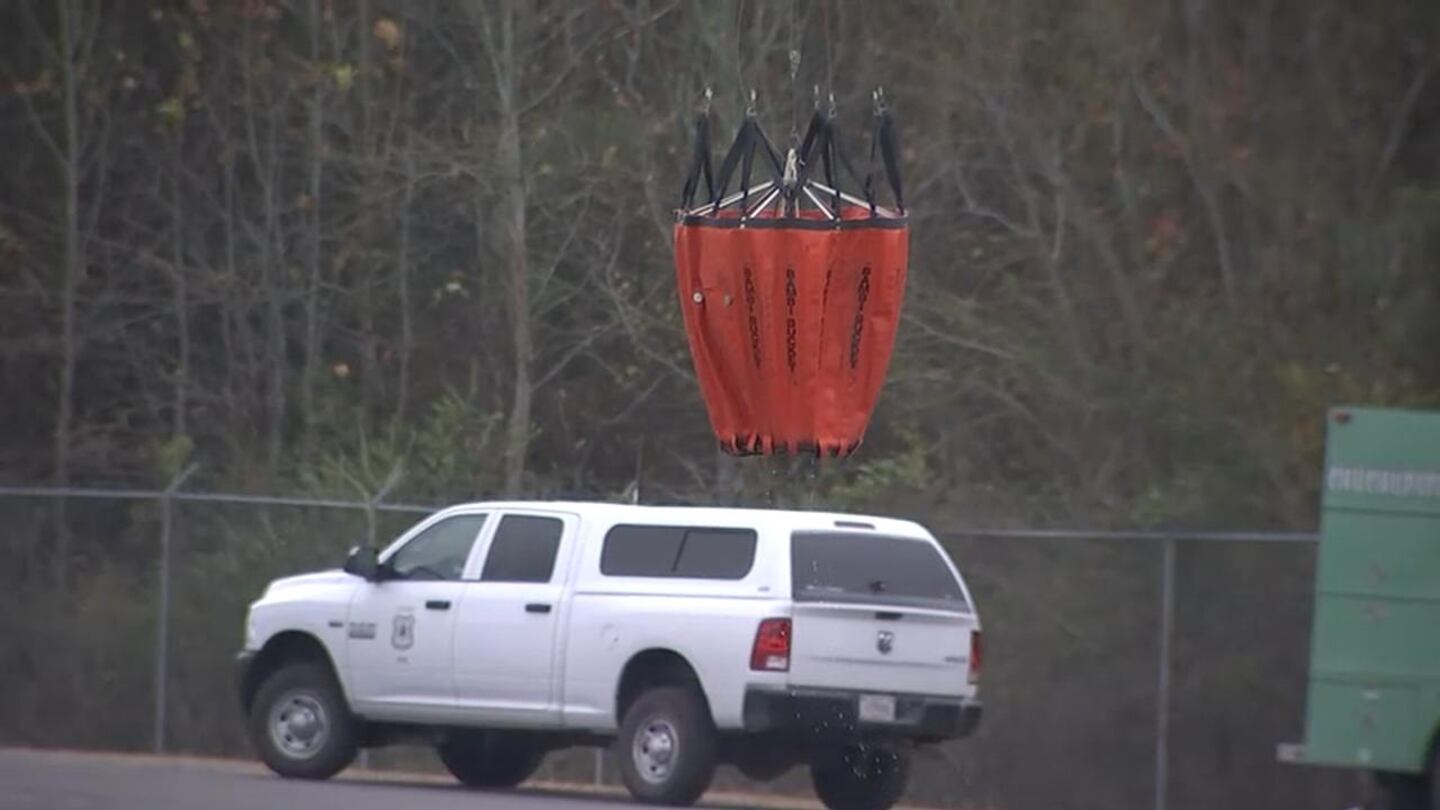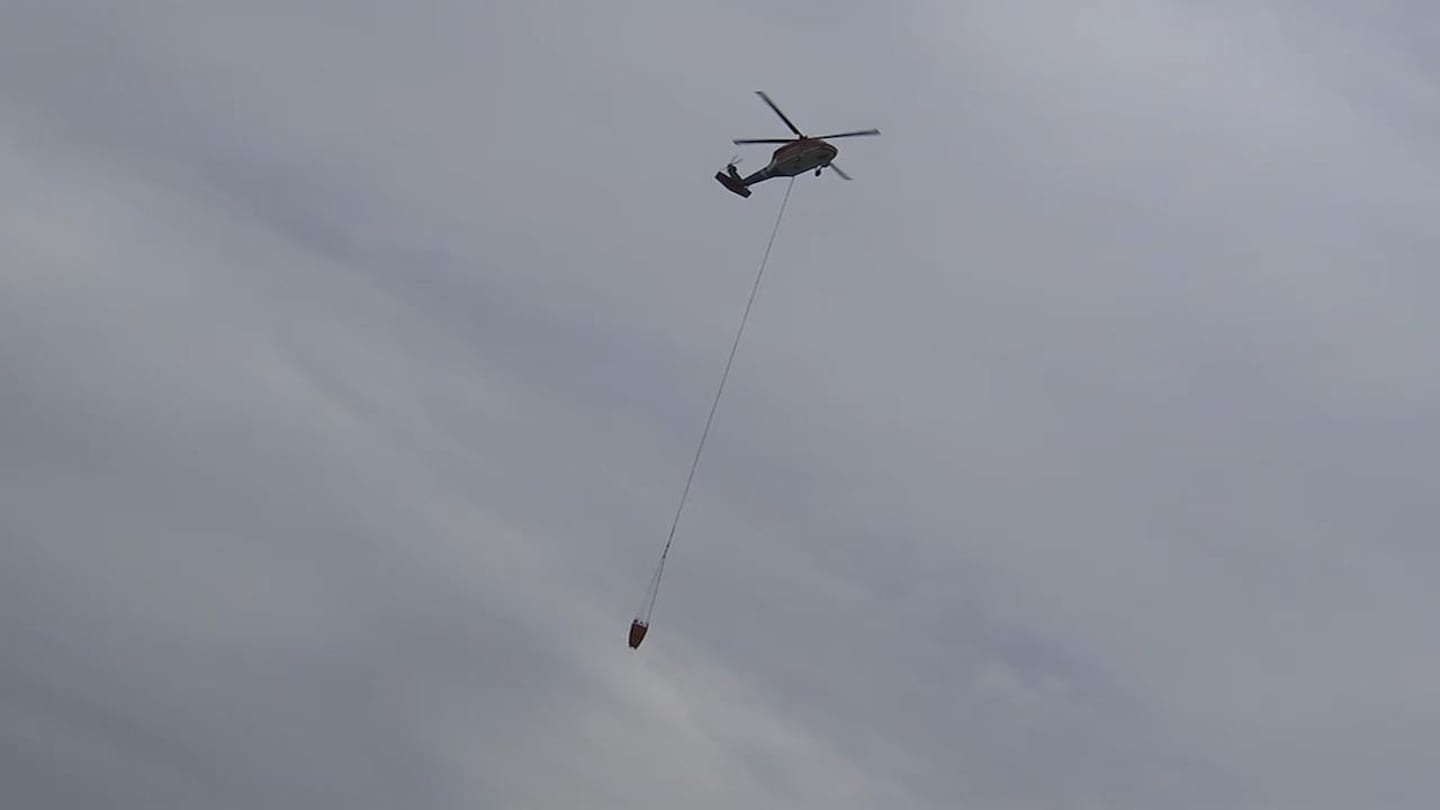FANNIN COUNTY, Ga. — Fire officials confirm to Channel 2 Action News that wildfires have now burned one-third of the Cohutta Wilderness in Fannin County.
Officials with the U.S. Forest Service started deploying helicopters Friday to fight fire with fire, using special incendiary bombs in their battle to put out the flames.
Clay Van Horn with the Forestry Service gave Channel 2’s Berndt Petersen a close look at what’s called a Bambi-Bucket. The bucket hangs from the helicopter and holds up to 900 gallons of water to help drown the fire, which has now blackened more than 13,000 acres.
“And they can slowly release water in a fine mist, or a semi-rain for a long distance to do more work," Van Horn told Petersen..
The U.S. Forest Service told Petersen despite one-third of the wilderness area being burned, it may be considered beneficial for the overall health of the forest.
TRENDING STORIES:
- Petition calls for Electoral College to change their vote
- Crews battle large apartment fire in DeKalb County
- Possible road rage incident leads to deadly shooting
The feds do not want the fire to break out where it could threaten homes. That’s where the choppers and their heavy loads come in.
“A lot of times if there's a problem area or hot spot, they'll come right over and release the whole thing on it and soak it down. Then ground troops back that up and come in and catch the fire," Van Horn said.
The fire is causing some health concerns across the metro.
The inter-Atlanta Football Club canceled games Friday night because of the smoky conditions lingering throughout the metro.
Rob Difiglio told Channel 2’s Dave Huddleston they are not sure about practices for Saturday and Sunday. He said the air quality from the forest fires is just too unhealthy.
Severe Weather Team 2 chief meteorologist Glenn Burns said the air quality was unhealthy Friday morning from the lingering smoke, but has gotten better throughout the afternoon.
Still, health experts say if you're playing or attending sporting events, don't push it.
"Those who are in the stands for four to five hours are going to feel it," said Dr. Kathleen Sheerin with Atlanta Allergy and Asthma.
Sheerin told Huddleston that prolonged exposure can affect your breathing and irritate your nose and eyes.
"It may feel like a bad smog day in the summer, where you take a deep breath and you feel that cough, the little irritation,” Sheerin said.
She told Huddleston it's important to listen to your body.
"Our northwest winds dominate in the winter time, so unless we get southwest (winds) and blow it to North Carolina, it's not going to help," Sheerin said.
Cox Media Group






